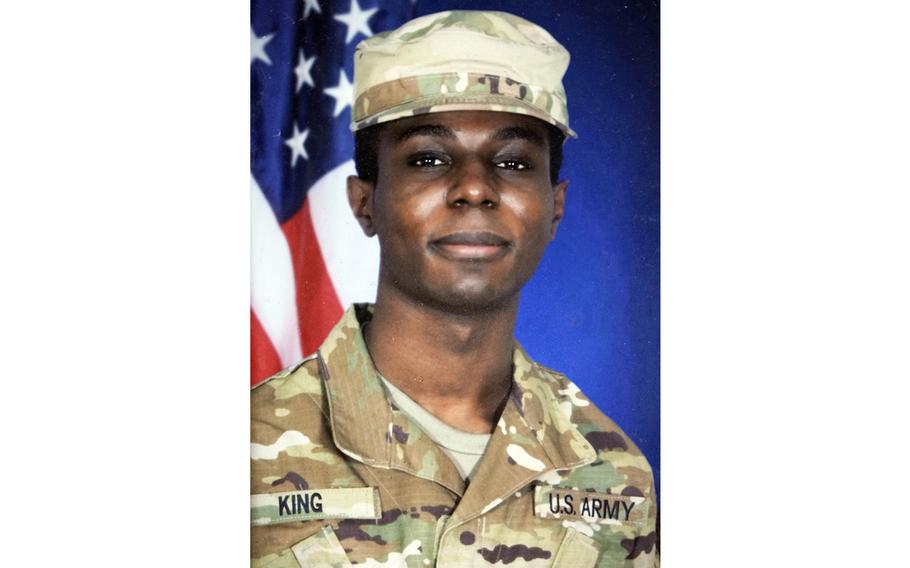A general view shows the truce village of Panmunjom inside the demilitarized zone separating the two Koreas on July 19, 2022. (Kim Hong-Ji/AP)
WASHINGTON — There are no indications yet that Army Pvt. Travis King’s crossing into North Korea this week was planned or expected by the government in Pyongyang, the Pentagon said Thursday.
King, 23, crossed into the Demilitarized Zone — a section of land that separates North and South Korea — on Tuesday and hasn’t been heard from since. The Army, Defense Department and other U.S. agencies are working to learn more about his whereabouts and safety and how he can be brought back to the United States.
“We don’t know his condition, we don’t know where he’s being held, we don’t know the status of his health,” said Sabrina Singh, a Pentagon spokeswoman. “We know he is in custody of the North Koreans, but beyond that … I can’t speak to that.”
The Army has launched an investigation into King’s disappearance and the top priority is to “bring him home,” she said.
Instead of getting on a plane back to the United States on Monday as King was scheduled to do, he left the airport and eventually joined a civilian tour of the DMZ. During that tour, King sprinted across the DMZ and climbed into a van, raising questions about whether his swift actions could have been planned with North Korea, according to some news reports.
“We don’t have any inclination of that at this time,” Singh said. “We will let the investigation take its course.”
The Pentagon and State Department are working to learn more about King’s whereabouts, but Singh said U.S. officials have so far been unable to communicate directly with North Korea.

This family photo shows a portrait of American soldier Travis King displayed at the home of his grandfather Carl Gates, Wednesday, July 19, 2023, in Kenosha, Wis. Pvt. King bolted into North Korea while on a tour of the Demilitarized Zone on Tuesday, July 18, a day after he was supposed to travel to Fort Bliss, Texas. (Family Photo/AP)
King — a cavalry scout with the Army’s 1st Armored Division — spent six weeks in a South Korean prison for assault and was facing more administrative punishment in the United States, military officials have said. He was released from prison on July 10 and a few days later was booked on the flight back to his home station at Fort Bliss, Texas. Military escorts saw King to the airport’s security checkpoint — the farthest point that they could go without a ticket — but did not actually see him get on the plane.
“I don’t think there was any anticipation that he was going to not board his flight,” Singh said.
Army investigators are also trying to piece together King’s actions for multiple hours between the time that he left the airport and the moment he sprinted across the DMZ. Officials have said he joined a civilian tour of the border village of Panmunjom — where the 1953 Korean War armistice was signed — immediately before he crossed into North Korea.
Some of King’s relatives have speculated the soldier might have decided to flee into North Korea because he was feeling overwhelmed by his legal problems and a possible discharge from the Army.
"I can't see him doing that intentionally if he was in his right mind," Carl Gates, King's maternal grandfather, told The Associated Press.
"I don't understand why he would do that, because it seemed like he was on his way back here to the United States," the soldier’s uncle Myron Gates said. "He was on his way home."